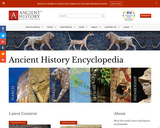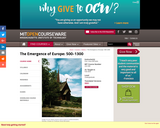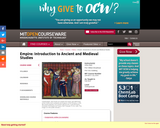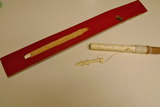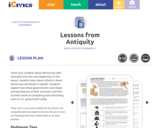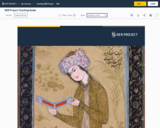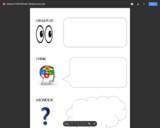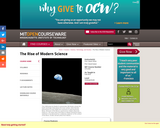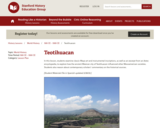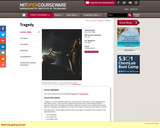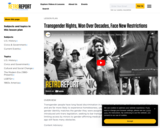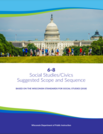
The Wisconsin Social Studies/Civics 6-8 Suggested Scope & Sequence is divided by grade. The writing team decided this because they wanted to be able to build upon previous learning, and if the three courses were listed at any grade, educators would not be able to count on what was happening the year before. Therefore, we offer the
following order of courses:
• 6th Grade: Geography & Cultures of the World: Yesterday and Today
• 7th Grade: Civics & Our Contemporary World
• 8th Grade: Wisconsin & U.S. Studies (Thematic, 1924 – Present Day)
Civics and Social Studies are integrative by nature. Focusing on themes over dates, names, and battles can help students visualize the connections between strands of social studies better and learn to see the bigger picture while still meeting our state standards and expectations. Instead of viewing events in isolation, a thematic approach allows
students to better see connections and patterns across time. In addition, it assists teachers in helping students make connections to their own lives, identities, and current issues.
Each course is thematic, based in inquiry, has a civics lens, and is aligned to the Wisconsin Standards for Social Studies and the National Council for the Social Studies Themes of Social Studies. The courses all have the same units, focused on the strands of social studies (Inquiry, Behavioral Sciences, Economics, Geography, History, Political Science) in a thematic manner through the subject area. Every year starts with an inquiry unit to build inquiry skills and dispositions.
Each unit is further divided into planning ideas tied to middle school indicators from the Wisconsin Standards for Social Studies (2018). These planning ideas include:
• Potential Essential Questions, aligned to the standards
• NCSS theme of this unit
6-8 Social Studies/Civics: Suggested Scope and Sequence 8
• Focusing Questions for the Topic
• Recommended Inquiry Topics
• Specific Social Studies Indicators met with this unit
• Important Terms and Points to Consider
• Supporting Resource Providers to Consider
The essential and focusing questions are meant to help guide instruction and determine quality resources and lessons for use in the classroom. The recommended inquiry topics are provided to assist specific content choices for the unit.
We recognize this work is not as complete as the K-5 recommended scope & sequence. Where the K-5 team started with a framework similar to this document, the 6-8 started from scratch. We anticipate a more robust 6-8 document similar to the current released K-5 to be released by summer 2024.
- Subject:
- American Indian Studies
- Ancient History
- Civics and Government
- Economics
- Ethnic Studies
- Gender Studies
- Geography
- Psychology
- Religious Studies
- Social Studies
- Sociology and Anthropology
- U.S. History
- World Cultures
- World History
- Material Type:
- Curriculum Map
- Author:
- Wisconsin Department of Public Instruction
- Kristen McDaniel
- Date Added:
- 01/12/2024
